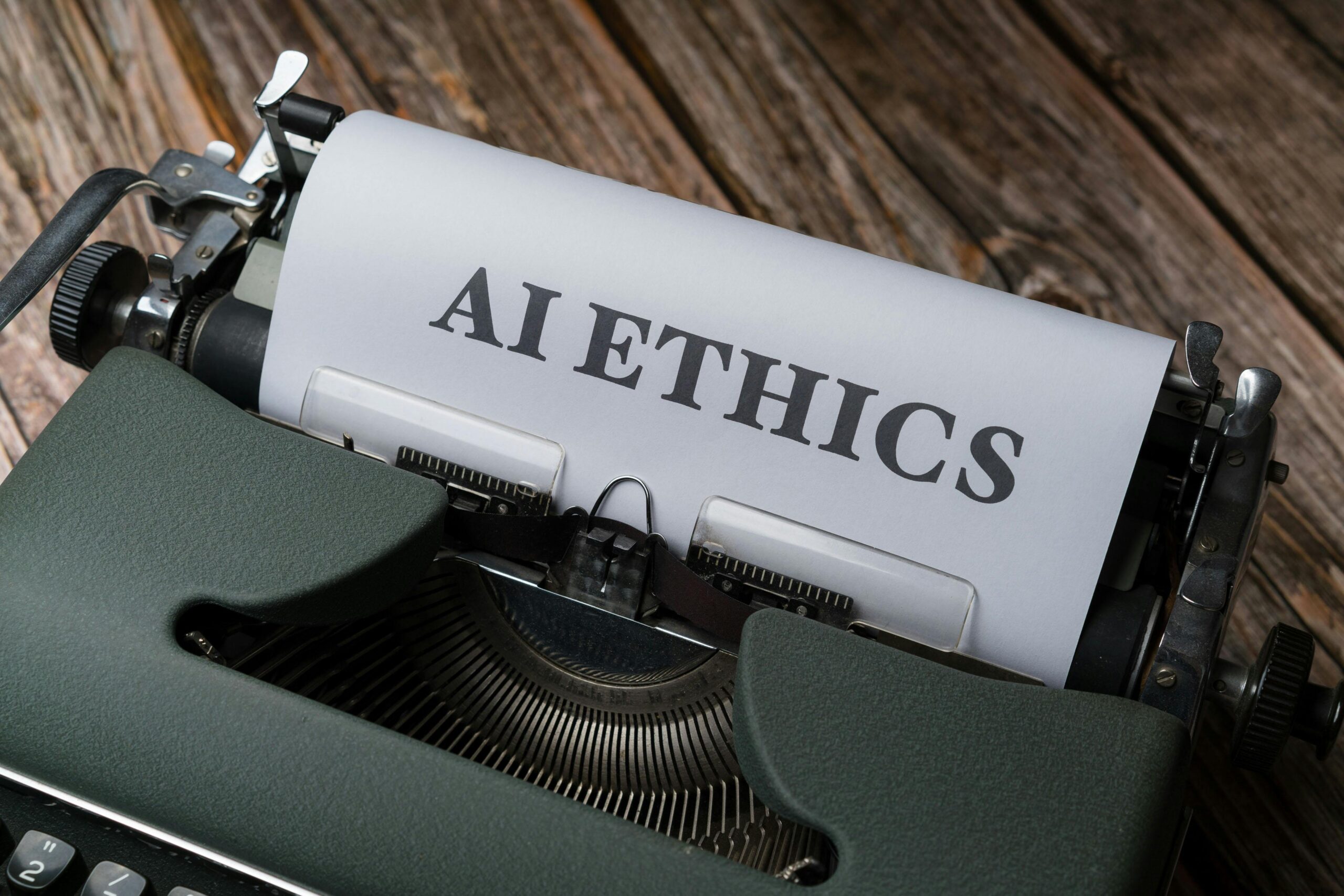Artificial intelligence is no longer a futuristic concept—it’s reshaping how enterprises operate, compete, and deliver value while demanding unprecedented ethical vigilance.
🚀 The Transformative Power of AI in Modern Enterprise
The integration of artificial intelligence into enterprise ecosystems represents one of the most significant technological shifts since the internet revolution. Organizations across industries are leveraging machine learning, natural language processing, and predictive analytics to optimize operations, enhance customer experiences, and unlock new revenue streams. However, this technological leap forward comes with substantial ethical responsibilities that cannot be ignored.
Today’s business leaders recognize that AI adoption isn’t merely about implementing cutting-edge technology—it’s about doing so in ways that respect human dignity, ensure fairness, protect privacy, and maintain transparency. Companies that prioritize ethical AI frameworks aren’t just mitigating risks; they’re building competitive advantages that resonate with increasingly conscious consumers, investors, and regulatory bodies.
The distinction between organizations that will thrive and those that will struggle in the AI era increasingly depends on their commitment to ethical implementation. Forward-thinking enterprises are establishing governance structures, creating accountability mechanisms, and embedding ethical considerations into every stage of their AI development lifecycle.
📊 Understanding Ethical AI: Beyond Compliance to Value Creation
Ethical AI extends far beyond regulatory compliance. It encompasses a comprehensive approach to developing and deploying artificial intelligence systems that align with fundamental human values, societal norms, and business integrity. This philosophy recognizes that AI systems can perpetuate biases, invade privacy, make opaque decisions, and create unintended consequences if not carefully designed and monitored.
Leading enterprises are discovering that ethical AI practices generate tangible business benefits. Organizations with robust ethical frameworks experience higher customer trust, stronger brand reputation, better employee morale, and reduced legal exposure. Research consistently shows that companies prioritizing responsible AI adoption outperform their competitors in customer retention and market valuation over time.
Core Pillars of Ethical AI Implementation
The foundation of ethical AI rests on several interconnected principles that guide responsible development and deployment:
- Transparency: AI systems should operate with explainability, allowing stakeholders to understand how decisions are made and what data influences outcomes.
- Fairness: Algorithms must be designed and tested to minimize bias and ensure equitable treatment across demographic groups and contexts.
- Privacy Protection: Data collection, storage, and processing must respect individual rights and comply with evolving privacy regulations worldwide.
- Accountability: Clear ownership and responsibility structures ensure humans remain in control of AI systems and their consequences.
- Safety and Security: Robust safeguards protect against malicious use, system failures, and unintended harmful outcomes.
- Human-Centricity: AI should augment human capabilities rather than replace human judgment in critical decisions affecting people’s lives.
💼 Strategic Implementation: How Leading Enterprises Approach Ethical AI
Organizations at the forefront of ethical AI adoption follow structured approaches that integrate ethical considerations from conceptualization through deployment and ongoing monitoring. These companies understand that retrofitting ethics into existing AI systems is significantly more challenging and less effective than embedding ethical principles from the outset.
Establishing Governance Frameworks
Successful enterprises create dedicated AI ethics committees or boards comprising diverse stakeholders—including technologists, ethicists, legal experts, business leaders, and sometimes external advisors. These governance bodies develop organizational AI principles, review high-risk applications, resolve ethical dilemmas, and ensure alignment with corporate values and societal expectations.
Microsoft, for example, established its AI and Ethics in Engineering and Research (AETHER) Committee to advise on responsible AI practices. Similarly, Google formed an Advanced Technology External Advisory Council to examine ethical considerations in AI development. While approaches vary, the common thread is institutionalizing ethical oversight rather than treating it as an afterthought.
Implementing Ethical Design Processes
Leading organizations integrate ethical checkpoints throughout their AI development lifecycle. This includes conducting ethical impact assessments before project initiation, implementing bias detection during model training, performing fairness audits before deployment, and establishing continuous monitoring mechanisms post-launch.
These processes involve multidisciplinary teams that bring diverse perspectives to identify potential ethical issues early. Engineers work alongside domain experts, social scientists, and affected community representatives to understand context, anticipate consequences, and design mitigation strategies.
🎯 Addressing Bias: The Critical Challenge in AI Ethics
Algorithmic bias represents one of the most pressing ethical challenges in AI adoption. Machine learning systems learn from historical data, which often reflects existing societal biases and inequalities. Without deliberate intervention, AI can perpetuate or even amplify discrimination in hiring, lending, criminal justice, healthcare, and countless other domains.
Progressive enterprises recognize that addressing bias requires technical solutions combined with organizational commitment. This includes diversifying training datasets, implementing bias detection algorithms, conducting regular fairness audits, and creating feedback mechanisms that allow affected individuals to challenge automated decisions.
Practical Approaches to Bias Mitigation
Organizations leading in ethical AI employ several strategies to combat algorithmic bias. They audit datasets for representativeness before training models, use techniques like adversarial debiasing during model development, and implement threshold adjustments to ensure equitable outcomes across demographic groups.
Equally important is fostering diverse AI development teams. Research consistently demonstrates that homogeneous teams are more likely to overlook biases that affect underrepresented groups. Companies like Salesforce, IBM, and Accenture have made substantial investments in diversifying their AI talent pipelines, recognizing that inclusive teams build more equitable systems.
🔒 Privacy-Preserving AI: Building Trust Through Data Protection
As AI systems require vast amounts of data to function effectively, privacy concerns have intensified. Enterprises committed to ethical AI adoption implement privacy-by-design principles, ensuring data protection is built into systems rather than added as an afterthought.
Emerging technologies like federated learning, differential privacy, and homomorphic encryption enable organizations to derive insights from data without compromising individual privacy. These techniques allow AI models to learn from distributed datasets without centralizing sensitive information or exposing personal details.
Apple’s approach to on-device machine learning exemplifies this commitment. By processing much of its AI locally on user devices rather than in centralized servers, the company minimizes data collection while still delivering personalized experiences. This model demonstrates that privacy and functionality need not be mutually exclusive.
Navigating Global Privacy Regulations
The regulatory landscape for AI and data privacy continues to evolve rapidly. The European Union’s General Data Protection Regulation (GDPR) established significant precedents around data rights, including requirements for algorithmic transparency and the right to explanation for automated decisions.
Forward-thinking enterprises don’t view these regulations as burdens but as frameworks that build consumer trust and level competitive playing fields. Organizations like SAP and Siemens have developed comprehensive data governance programs that exceed minimum compliance requirements, positioning themselves as trusted partners in an increasingly privacy-conscious marketplace.
🌍 Transparency and Explainability: Opening the Black Box
AI systems, particularly deep learning models, often operate as “black boxes”—producing accurate predictions without clear explanations of how they reached their conclusions. This opacity creates ethical challenges, especially in high-stakes contexts like healthcare diagnostics, credit decisions, or criminal sentencing recommendations.
Leading enterprises invest in explainable AI (XAI) technologies that provide interpretable insights into model decision-making. Techniques like LIME (Local Interpretable Model-agnostic Explanations), SHAP (SHapley Additive exPlanations), and attention mechanisms help stakeholders understand which features influenced specific predictions.
Financial institutions like JPMorgan Chase and Capital One have pioneered explainable AI in credit decisioning, providing applicants with clear reasons for approval or rejection. This transparency not only satisfies regulatory requirements but also builds customer trust and enables continuous improvement of decision models.
👥 Human-AI Collaboration: Augmentation Over Replacement
Ethical AI adoption recognizes that the most effective implementations augment human capabilities rather than simply replacing human workers. This philosophy acknowledges that while AI excels at processing vast datasets and identifying patterns, humans bring contextual understanding, ethical judgment, creativity, and empathy that remain irreplaceable.
Companies like Siemens and General Electric have implemented AI systems that support rather than supplant their workforce. Predictive maintenance AI tools alert technicians to potential equipment failures, but experienced professionals make final decisions about interventions. Medical imaging AI assists radiologists by highlighting areas of concern, but qualified physicians make diagnoses and treatment recommendations.
Reskilling and Workforce Transition
Organizations committed to ethical AI adoption invest substantially in workforce development programs that prepare employees for AI-augmented roles. Amazon’s $700 million upskilling initiative and AT&T’s Future Ready program exemplify corporate commitment to helping workers transition into emerging roles rather than simply automating jobs away.
These programs recognize that ethical AI implementation includes responsibility toward affected workers. By providing training in AI literacy, data analysis, and complementary technical skills, enterprises demonstrate that technological advancement and workforce wellbeing can coexist.
⚖️ Accountability Mechanisms: Ensuring Responsible AI Governance
Establishing clear accountability for AI systems represents a fundamental ethical imperative. When automated systems make consequential decisions, stakeholders must know who bears responsibility for outcomes—both positive and negative.
Leading organizations create explicit accountability frameworks that designate responsible parties for AI system development, deployment, monitoring, and remediation. These frameworks include incident response protocols, audit trails, and escalation procedures that ensure problems are quickly identified and addressed.
The financial services industry has been particularly proactive in this area, with institutions like HSBC and Deutsche Bank establishing AI risk management frameworks that mirror their existing operational risk structures. These systems ensure that AI deployments undergo rigorous review and that clear ownership exists throughout the AI lifecycle.
🔄 Continuous Monitoring and Improvement: Ethical AI as an Ongoing Commitment
Ethical AI adoption isn’t a one-time achievement but an ongoing commitment requiring continuous monitoring, evaluation, and refinement. AI systems can drift over time as data distributions change, societal norms evolve, or unintended consequences emerge in deployment contexts.
Progressive enterprises implement comprehensive monitoring systems that track key fairness metrics, performance indicators, and ethical compliance measures. These systems generate alerts when models deviate from expected parameters, enabling rapid intervention before minor issues escalate into significant problems.
Netflix and Spotify, for example, continuously monitor their recommendation algorithms for filter bubbles and echo chambers that might limit user exposure to diverse content. By tracking engagement patterns and incorporating user feedback, these companies iteratively improve their systems to balance personalization with discovery.
🌟 The Competitive Advantage of Ethical AI Leadership
Organizations pioneering ethical AI adoption are discovering significant competitive advantages that extend beyond risk mitigation. Consumer research consistently shows that trust increasingly influences purchasing decisions, with customers willing to pay premiums for products from companies demonstrating strong ethical commitments.
Investors are also prioritizing ethical AI practices in their evaluation criteria. Environmental, Social, and Governance (ESG) frameworks increasingly incorporate AI ethics as material factors in investment decisions. Companies with robust ethical AI frameworks often enjoy better access to capital and higher valuations than competitors with weaker practices.
Furthermore, ethical AI leadership enhances employer branding, helping organizations attract and retain top talent. Data scientists and AI engineers increasingly seek employers whose values align with their own, with many preferring organizations committed to responsible innovation over those prioritizing rapid deployment without ethical guardrails.
🚧 Overcoming Implementation Challenges
Despite growing awareness of ethical AI importance, organizations face substantial challenges in implementation. Technical complexity, competing business pressures, skill gaps, and organizational inertia can all hinder progress toward ethical AI adoption.
Successful enterprises address these challenges through executive sponsorship that elevates ethical considerations to strategic priority. When C-suite leaders visibly champion ethical AI and allocate appropriate resources, organizations overcome resistance and embed responsible practices throughout their operations.
Partnerships with academic institutions, industry consortia, and standards organizations also accelerate ethical AI maturity. Collaborations like the Partnership on AI bring together diverse stakeholders to develop shared frameworks, best practices, and benchmarking tools that help individual organizations advance their capabilities.
🎓 Building an Ethical AI Culture
Technology and processes alone cannot ensure ethical AI adoption—organizational culture plays a crucial role. Companies leading in this space cultivate cultures where employees feel empowered to raise ethical concerns, where diverse perspectives are valued, and where short-term performance pressures don’t override ethical considerations.
This cultural transformation requires sustained effort, including ethics training for technical teams, incorporating ethical performance metrics into employee evaluations, and celebrating examples of employees who prioritize responsible practices even when doing so creates short-term challenges.

🔮 Shaping the Future: Ethical AI as Business Imperative
As artificial intelligence becomes increasingly central to enterprise operations and strategy, ethical adoption transitions from optional best practice to business imperative. Regulatory pressures will intensify, consumer expectations will rise, and competitive dynamics will increasingly favor organizations demonstrating genuine commitment to responsible innovation.
The enterprises that will thrive in this evolving landscape are those recognizing that ethical AI isn’t a constraint on innovation but rather a catalyst for sustainable competitive advantage. By embedding ethical principles into their AI strategies today, forward-thinking organizations are building the trust, resilience, and legitimacy required for long-term success.
The path forward requires vision, commitment, and continuous effort. Organizations must invest in governance structures, technical capabilities, workforce development, and cultural transformation. They must engage stakeholders, embrace transparency, and remain humble about the limitations of current knowledge while committed to continuous improvement.
The revolution in business practices driven by AI adoption is already underway. The question facing every enterprise leader is not whether to adopt AI, but how to do so in ways that create value for all stakeholders while upholding the ethical principles that define us as humans. Those who answer this question thoughtfully and act decisively will not only revolutionize their business practices—they will help shape a future where technology serves humanity’s highest aspirations.
Toni Santos is a global-policy researcher and ethical-innovation writer exploring how business, society and governance interconnect in the age of interdependence. Through his studies on corporate responsibility, fair trade economics and social impact strategies, Toni examines how equitable systems emerge from design, policy and shared vision. Passionate about systemic change, impact-driven leadership and transformative policy, Toni focuses on how global cooperation and meaningful economy can shift the scenario of globalization toward fairness and purpose. His work highlights the intersection of economics, ethics and innovation — guiding readers toward building structures that serve people and planet. Blending policy design, social strategy and ethical economy, Toni writes about the architecture of global systems — helping readers understand how responsibility, trade and impact intertwine in the world they inhabit. His work is a tribute to: The global commitment to equity, justice and shared prosperity The architecture of policy, business and social impact in a connected world The vision of globalization as cooperative, human-centred and regenerative Whether you are a strategist, policymaker or global thinker, Toni Santos invites you to explore ethical globalization — one policy, one model, one impact at a time.




